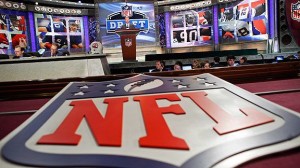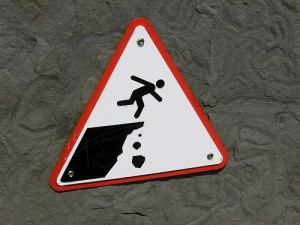
Don’t You Know Who I Am?
It seems that we constantly hear complaints about the lack of accountability or lack of maturity of professional athletes, from both society and fans alike. They say that athletes have overly inflated egos.
They claim that athletes can get away with anything. They state that athletes make too much money and make poor decisions financially. They cannot believe the lack of discipline in athletes. They scold the education system for the lack of knowledge athletes present.
But is this a fair shake? Is it judgmental or stereotypical? How did these characterizations come to exist? Why do people feel this way? Lucky for you, my experience can offer you an inside look at the development of a professional athlete… and everything that comes with it.
Born an Athlete
From the time a child is old enough to play sports, there is a constant pressure to perform. And this pressure often goes beyond simply playing their best; it is to be THE BEST. Too often, coaches, parents, and administrators are obsessed with that objective for the young athletes in their lives. This drive to be the best and win at all costs is pushed onto children. Maybe this is because sports success provides fulfillment and purpose, maybe it is because it is tied to revenue to keep a program running, or maybe it’s because people simply want to be the best at whatever they do. But maybe, just maybe, it’s because society sees the money, fame and power involved with sports. Hence the business of sports… but it wouldn’t happen without the skill of athletes.
The joke is on us: Everything is not as innocent as it seems. The pressure on our athletic youth has an impact on their lives and molds them into the professional athletes we see today. I have limited exposure to high school and college athletics, so I will minimize my comments about these levels, but I do feel the need to touch on those components of the process. In addition, I want to strictly focus on football, because my experience is primarily within that sport.
Not Just an Amateur
By high school, talent evaluators are already identifying and separating the elite athletes. They are immediately catered to and sought after. They are more popular and have more opportunities presented to them. This is both good and bad. A young adult receives a chance to excel with a natural talent. Don’t we all wish the talents in our children were discovered and maximized? But it also creates an artificial environment and a false sense of how the world works. High school superstars are recruited, and in the case of those in the upper echelon, they are handed a collegiate future on a silver platter.
We all know that the media has extensive coverage on college sports, and this immediately throws the top athletes into the spotlight. They are told and shown that they are the best over and over. If every day you were told that you were the best chef in town, how could you not believe it? Think about it: How would YOU keep yourself grounded? How would YOU be able to know the difference between reality and a world of luxury? So the best college football players never really know that they are living in a bubble, unless they have parents, coaches or other respected adults keeping them grounded and exposing them to “normal life.”
 Draft Day
Draft Day
By their Junior year of college, football players are thrown into a cycle of being tested by NFL teams, pursued by agents, and offered endorsement deals, marketing opportunities, appearances, lines of credit, etc… Again, I do not want to speak out of turn due to my limited experience in this arena, but it is visible, even to an outsider. So now the PRESSURE IS REALLY ON them.
One year later as a Senior, college football players have selected the professional representation of a sports agent and have all kinds of groupies hanging around them. The sad thing is that most of these people are simply looking at the potential dollars to be earned and want a handout. Unfortunately, they are not real friends, and they do nothing to help these young men with their personal growth. Regardless, the top athletes get drafted by NFL teams and are introduced to life in the NFL.
Wake Up
Among the thousands of college football players, only 32 are blessed enough with the talent and circumstances to be a first round draft pick. Outside of these 32, most players quickly receive a culture shock. They are no longer the most talented player on the team: They are now lucky to be the most talented in their position group. They no longer attract the media spotlight: They are lucky to be interviewed by the local media for a local sports broadcast. They are no longer pursued by agents and fans: There are much more prolific players to go after. The groupies still exist, but only as long as the perception of money does. Worst of all, there is no thirty million dollar rookie contract.
Some players improve and later earn a financially lucrative second contract. (It is not as easy to earn as it seems.) But the average player’s career barely lasts 3 years, and this might simply be a path of participating in multiple training camps and practice squads with different teams. One season-ending injury could quickly make a player ‘damaged goods,’ and he can fall off the radar of teams as they look for younger and less damaged players. So what happens to those players that don’t get the big-time money as a first round draft pick or as a top tier talent with multiple contracts?
Players often bounce from team to team due to salary cap strategies and roster constraints. After all, the salary cap is what helps the NFL to maintain a league of parity. But most players don’t understand this process. The first few times they are released, they take it personally. And IF they latch on with a new team and make it, there is still no guarantee they will not be released again in the near future. My experience showed me that younger players had a hard time grasping the situation, as did veteran players who had previously played under contracts worth tens of millions of dollars. Teams are constantly trying to upgrade talent, so if a player doesn’t differentiate himself in any way, teams need to move on and give another player a look.
 Falling Off The Mountain
Falling Off The Mountain
Rookies, whether drafted in the first round, seventh round or undrafted, all KNOW they will make the team. And while that confidence is admirable, it is unrealistic. The talent pool is just too rich. So when these players are released at the end of training camp, they don’t know what to do. It is a personal blow, and I have seen many players not know how to handle it. Teams often want to sign these players back to their practice squad, but these rookies just don’t get how they could have been cut. I’ve seen everything from players crying to players not showing up the next day to sign to the practice squad (only to have their best alternative option be to sign with another’s team practice squad). And the practice squad is not a bad role: The player still receives a reduced salary, but a rookie just sees that he is not on the primary roster. They think: “How could this happen to me? They drafted me. I’m a great player! My agent, brother, former coach, sports reporters, scouts, the fans, etc… have told me so since middle school. They don’t know what they’re doing. Don’t they know who I am?”
Successful veterans with multi-million dollar yearly salaries that have been released or whose contracts have expired all KNOW they are worth big money with another team. These players fail to realize that if a team has given them a pink slip or let them walk without a new top dollar contract it is because the player is simply not worth his large salary. Teams can and will always finagle salary cap dollars to fit a player under the salary cap if the team really wants to keep him on the team.
So what makes a player less desirable? Declining performance (every team sees the same game film indicating so), injury issues, age, change of scheme, another player signed, positional needs, etc… Outside of the few players that strike it rich at the beginning of free agency, these players need to embrace a low salary contract. Instead, they think: “But I started for my last team. They paid me top dollar. Nothing is wrong with me. I’m still the same player I was for my last team. My former team was crazy for letting me go. Don’t they know who I am? Surely every other team in the NFL sees my talent and will want me. After all, my coaches, teammates and agent constantly tell me I am a top talent.”
All or Nothing?
In these scenarios, players do not how to respond. The popularity bubble that has been built around them has popped, and they quickly adopt an attitude suggesting that they deserve better. After all, that’s all they have ever known, so can you blame them? It is a natural response when facing a situation that has never previously been presented. Why wouldn’t they look at the situation and scoff? Granted, players can independently create a pedestal and raise themselves up. They could develop an ego, and they could believe they are above the law, thereby believing they can ignore the rules that you and I must abide by. (Hence, the speeding tickets, DUI’s, reckless driving, domestic issues, etc…) But these players are very few and far between.
We are pressuring and forcing 21 year-old young men to make decisions, and we are expecting them to make the right decisions, mature decisions. Especially if no parental figures are active in their lives, they do not learn respect, common courtesy or responsibility. And this is exacerbated by the fact that they have grown up in that “upper echelon bubble.”
I will leave you with this for now, so please think it over. What is your perspective?
Next Friday I will explore the realities of a professional athletes’ career and the development of the ‘Don’t You Know Who I Am?’ persona.
Do you have comments or feedback for Joe? Contact him directly.



For keep the proper setting of the user name and its password needs some special kind of the delete cookies in windows 10 but after sometime user need to delete it for make the good working regulation and this type of routine always make your browser very healthy for the use.
With each guess, Worldle gives you distance clues to guide your next move, making it a game of strategy and geographic knowledge.
Thank you for this thoughtful and well-articulated exploration of the social development of athletes. Your insights offer a valuable perspective on the complex realities behind the public image of professional players, particularly in football. By examining the pressures placed on young athletes from an early age, and the often isolating effects of fame and expectation, you bring much-needed nuance to a frequently misunderstood subject. This article highlights the critical importance of mentorship, grounded support systems, and a more compassionate understanding of athletes as individuals navigating an extraordinary and high-pressure environment. I look forward to the next installment in this important series.